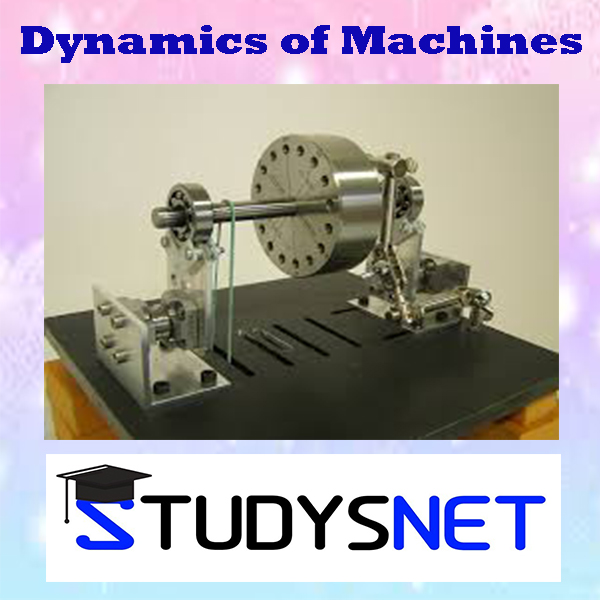Dynamics of Machines free videos and free material uploaded by Uday Shankar .
Course Objectives:
1. To equip the student with fundamental knowledge of dynamics of machines so that student can appreciate problems of dynamic force balance, transmissibility of forces, isolation of systems, vibrations.
2. Develop knowledge of analytical and graphical methods for calculating balancing of rotary and reciprocating masses.
3. Develop understanding of vibrations and its significance on engineering design
4. Develop understanding of dynamic balancing, flywheel analysis, gyroscopic forces and moments
UNIT – I
PRECESSION: Gyroscopes, effect of precession motion on the stability of moving vehicles such as motor car, motor cycle, aero planes and ships, static and dynamic force analysis of planar mechanisms, (Demonstration of models in video show).
UNIT – II
FRICTION: Inclined plane, friction of screw and nuts, pivot and collar, uniform pressure, uniform wear, friction circle and friction axis: lubricated surfaces, boundary friction, film lubrication. CLUTCHES: Friction clutches- single disc or plate clutch, multiple disc clutch, cone clutch, centrifugal clutch. BRAKES AND DYNAMOMETERS: Simple block brakes, internal expanding brake, band brake of vehicle. General description and operation of dynamometers: Prony, Rope brake, Epicyclic, Bevis Gibson and belt transmission,
UNIT – III
TURNING MOMENT DIAGRAMS: Dynamic force analysis of slider crank mechanism, inertia torque, angular velocity and acceleration of connecting rod, crank effort and turning moment diagrams – fluctuation of energy – fly wheels and their design.
UNIT-IV
GOVERNERS: Watt, porter and proell governors, spring loaded governors – Hartnell and Hartung with auxiliary springs. sensitiveness, isochronism and hunting.
UNIT – V
BALANCING: Balancing of rotating masses single and multiple – single and different planes, use analytical and graphical methods. Primary, secondary, and higher balancing of reciprocating masses. analytical and graphical methods, unbalanced forces and couples – examination of “V” multi cylinder in line and radial engines for primary and secondary balancing, locomotive balancing, hammer blow, swaying couple, variation of tractive effort.
UNIT – VI
VIBRATIONS: Free Vibration of spring mass system –Natural frequency-types of damping – damped free vibration, Simple problems on forced damped vibration, vibration isolation and transmissibility transverse loads, vibrations of beams with concentrated and distributed loads. Dunkerly’s methods, Raleigh’s method, whirling of shafts, critical speeds, torsional vibrations, two and three rotor systems.
- Notes
- PPT
- Questions 1
- Questions 2

- 0 Reviews
- 7 Students
- 24 Courses

Write a public review